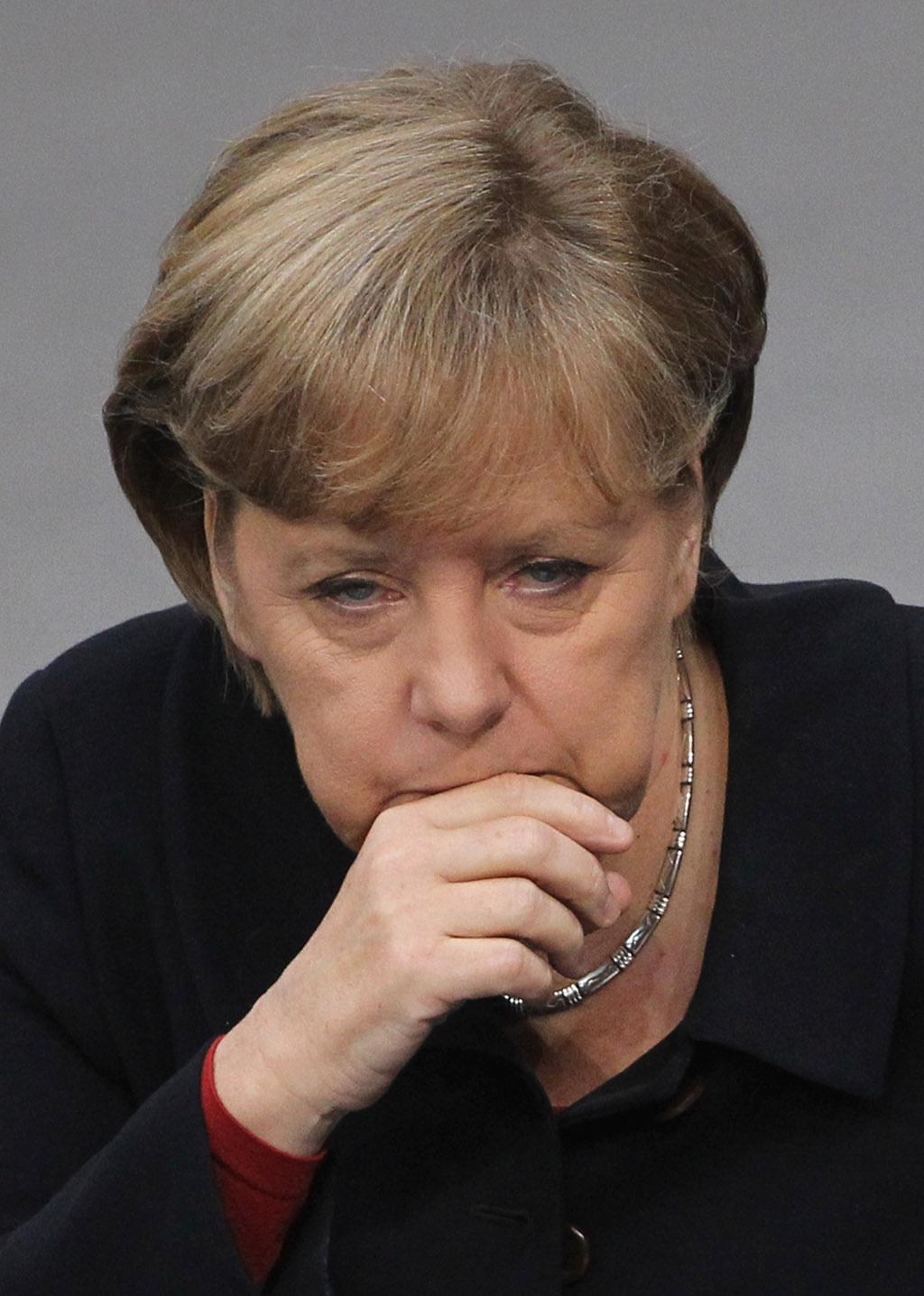Germany’s Angela Merkel announces Europe-wide ‘fiscal union’
Angela Merkel prepares to tell the German Bundestag the only way out of the euro mess is through deeper fiscal ties with their more profligate European partners.
German Chancellor Angela Merkel said Europe was working to establish a "fiscal union" in the face of a eurozone debt crisis that she said would take years to resolve.
In a speech to the Bundestag, Germany's lower house of parliament, Friday morning, Merkel told MPs that Europe was facing its biggest challenge yet, reported Agence France Presse.
GlobalPost analysis: Why Germany says "nein" on ECB as lender of last resort
The scale of the crisis has pushed European leaders to take unprecedented measures, she said, including contemplating a rewrite of the EU treaty:
"Anyone who had said a few months ago that we, at the end of 2011, would be taking very serious and concrete steps toward a European stability union, a European fiscal union, toward introducing [budgetary] intervention in Europe would have been considered crazy.
"Now, these items are on the agenda, we are on the verge of it. There are still difficulties to be surmounted but their necessity is now widely recognised. We're not just talking about a fiscal union but starting to create one. I believe you can't overestimate the importance of this step."
Merkel said such a union would have "strong interventionary powers," and be open to all EU countries, even those without the euro.
In effect, the BBC said, Germany is advocating "close integration of the tax-and-spend policies of individual eurozone countries, with Brussels imposing penalties on members that break the rules."
Germany's interpretation of fiscal union may differ from that of its European partners, however. According to the Guardian, "Merkel wants the European commission to have a veto over countries' tax and budget plans, whereas the French want national parliaments to be involved."
That option raises the possibility that member states would be able to veto the strict fiscal targets set by central authorities, the Guardian pointed out, thereby undermining the credibility of a fiscal union.
More from GlobalPost: Euro crisis: a plan emerges
Merkel's speech made clear that she favored shared budgetary discipline, but not shared liability.
Euro bonds issued by the European Central Bank (ECB) are "not a rescue measure," she said.
GlobalPost's correspondent in Berlin, Siobhan Dowling, explains Germany's reluctance to involve the ECB, as either a euro-bond issuer or a lender of last resort:
"Where other see a necessary bailout, Germans see a handout to countries that are living beyond their means. They regard this as letting them off the hook for their profligate ways. Berlin is convinced that only by imposing stringent sanctions on these debt sinners will they enact reforms. It also sees this as the best way to win back market confidence."
Merkel is due to meet French President Nicolas Sarkozy in Paris on Monday, to decide the joint proposals they will submit to other European leaders at a summit in Brussels on December 9.
More from GlobalPost: Germany catches euro contagion – good news for France?
Every day, reporters and producers at The World are hard at work bringing you human-centered news from across the globe. But we can’t do it without you. We need your support to ensure we can continue this work for another year.
Make a gift today, and you’ll help us unlock a matching gift of $67,000!
